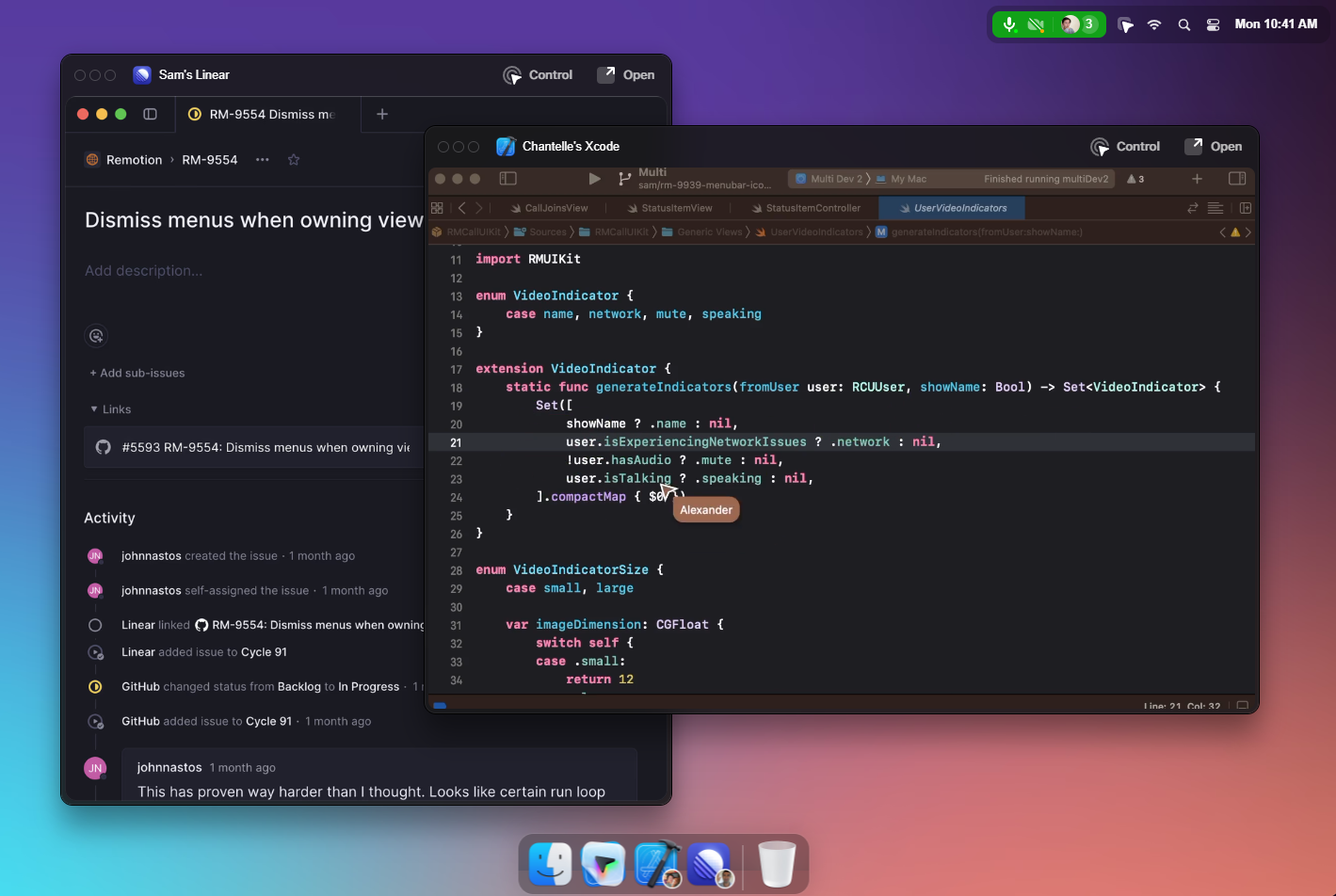OpenAI moves toward its own AI operating system and a post-browser world

With the acquisition of startup Multi, OpenAI is pushing to integrate its AI technology into desktop computing, moving beyond browser-based interactions and potentially developing an AI-based operating system.
OpenAI has purchased Multi, a startup founded by Alexander Embiricos and Charley Ho that created a Zoom-based video collaboration platform for remote teams. Multi had already been working on integrating generative AI for summaries and references into its software. Before the acquisition, the startup had raised $13 million from investors including Greylock and First Round Capital.
Video: Multi
"Recently, we’ve been increasingly asking ourselves how we should work with computers. Not on or using computers, but truly with computers. With AI," explains the Multi team in a statement. "We believe it’s one of the most important product questions of our time."
In May, OpenAI released a desktop version of ChatGPT for MacOS, with a Windows version in development. The new ChatGPT desktop app provides quick access to the AI assistant and includes features such as screenshots and voice mode.
The Multi acquisition and desktop app launch suggest that OpenAI is working on its own AI-based operating system, or at least an interaction layer for existing operating systems.
OpenAI developer Ben Newhouse said in January 2024 that OpenAI is working on an "industry-defining" new product using its latest models, and the company has also posted a job listing for desktop app development that mentions a "zero-to-one" product.
If successful, OpenAI's efforts could dramatically change the way we interact with computers, especially online content. A ubiquitous AI assistant could replace the browser as the primary interface to the Internet, fundamentally changing the role of search engines and websites.
For OpenAI, this makes sense - the browser-based Internet is still in Google's hands, although it's looking more and more like Google doesn't care much about it either.
The Multi app will shut down on July 24, 2024. Existing users can continue using the service until then, after which the company has promised to delete all user data.
AI News Without the Hype – Curated by Humans
As a THE DECODER subscriber, you get ad-free reading, our weekly AI newsletter, the exclusive "AI Radar" Frontier Report 6× per year, access to comments, and our complete archive.
Subscribe nowAI news without the hype
Curated by humans.
- Over 20 percent launch discount.
- Read without distractions – no Google ads.
- Access to comments and community discussions.
- Weekly AI newsletter.
- 6 times a year: “AI Radar” – deep dives on key AI topics.
- Up to 25 % off on KI Pro online events.
- Access to our full ten-year archive.
- Get the latest AI news from The Decoder.